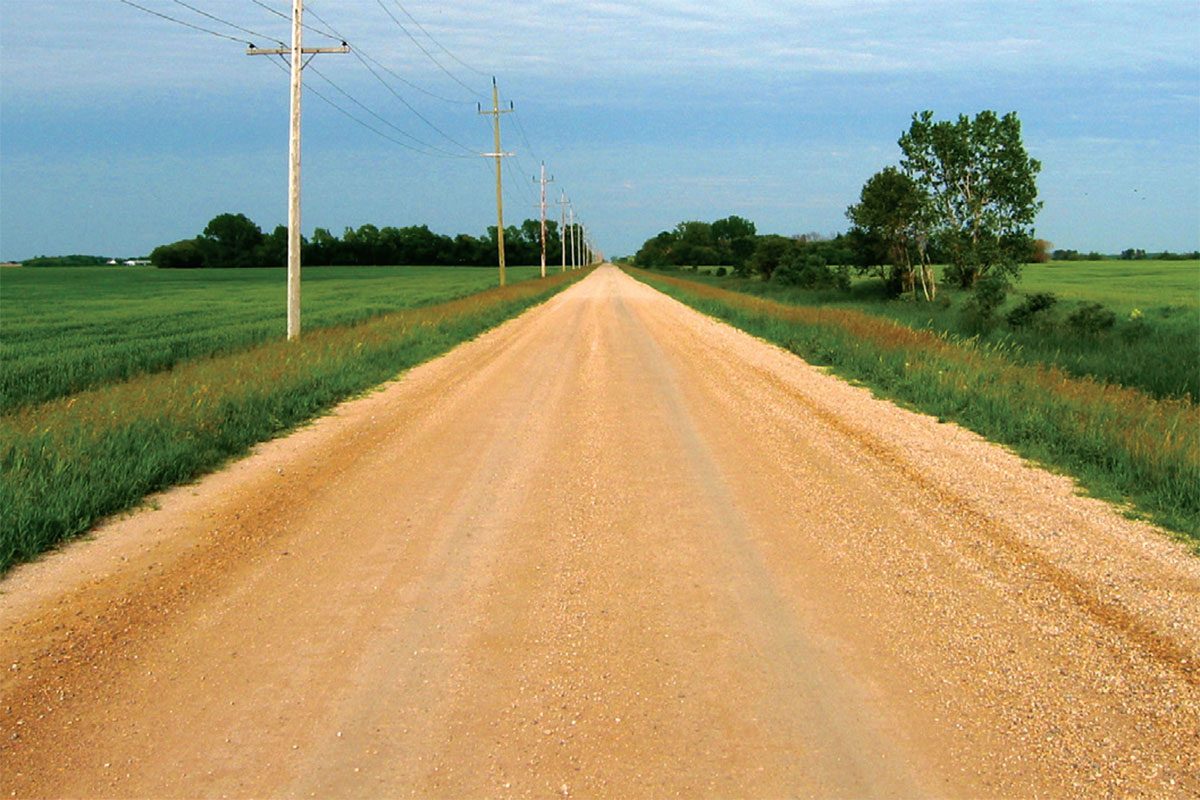
Op-ed: Building a political road between urban and rural Canadians
The following is an op-ed written by Royce Koop, associate professor and head of the political studies department. It was originally published in the Winnipeg Free Press on Nov. 30, 2018.
While writing her fascinating book, The Politics of Resentment, political scientist Katherine Cramer visited communities throughout Wisconsin to learn about the concerns of local residents. In small towns and rural communities, Cramer heard that residents were frustrated by not receiving “their fair share.”
They didn’t get their fair share of decision-making power or their fair share of funding from governments. But most notably, residents of small towns and rural communities felt they didn’t get their fair share of respect.
It was this feeling of resentment — that residents of small towns and rural communities weren’t given respect — that partly fuelled support for Donald Trump in rural America in the 2016 presidential election. When the results rolled in, Trump lost badly in the cities and narrowly edged out Democratic nominee Hillary Clinton in the suburbs. But Trump scored landslide victories in small town and rural America.
After the election, Cramer returned to the Wisconsin small towns she had visited to talk to residents about why they had voted the way they did. She confirmed that Trump’s belligerent populism and his willingness to shake up the status quo in Washington, D.C., had resonated. Urbanites had not been listening to the concerns of rural Americans, they reasoned; Trump was a powerful response to the perception they were being ignored.
And in the recent U.S. midterm elections, suburban voters tended to turn away from Trump while rural voters staunchly maintained their support for both the president and the candidates who received his endorsements.
If whole swaths of people in a democracy feel ignored and neglected, we should eventually expect a response. That response in the U.S. came in the form of Trump. Could something similar happen in Canada?
If anything, Canada is even more susceptible than the U.S. to the dangers of the urban-rural divide. Canadian society has become more urban over the course of several decades, with both rural Canadians moving to and immigrants settling in big cities. The 2016 Canadian census reveals that more than 35 per cent of Canada’s population now lives in the country’s three biggest cities: Toronto, Montreal and Vancouver. As a result, rural Canada’s political power has declined over time and its place in the country’s cultural consciousness has receded.
Canadian media, for example, is now concentrated almost entirely in big cities, and its coverage often reflects this. Rural Canadians may feel that issues covered by the CBC in its national newscasts, for example, reflect the concerns of urban Canadians but not their own, fuelling a feeling of being left out and neglected.
We already see an important urban-rural divide in support for political parties in Canadian elections. Political scientists have long recognized that where Canadians live — in either urban, suburban or rural areas — can have an important effect on who they vote for. For example, Justin Trudeau’s Liberal party won a strong majority government in the 2015 election, but that included only one-third of the country’s rural seats. The rest went to the opposition parties, especially the Conservatives.
What can be done to ensure Canada’s rural-urban divide doesn’t result in a Canadian Trump? Writing in the journal Policy Options last year, Sean Speer and Jamil Jivani addressed precisely this question. Among other answers, Speer and Jivani argue that a more inclusive and respectful politics that incorporates both urban and rural concerns could soothe tensions. The key, they argue, is empathy, which is sometimes lacking when urban and rural Canadian talk about one another. Such empathy is particularly important in political parties and the media.
This brings us to recent news of a distinctly rural fundraiser held by Conservative MP Rachael Harder, who hails from Lethbridge, Alta. Harder’s local party association was responsible for organizing a “Guns and Guinness” fundraiser, in which participants spent the afternoon shooting at clay pigeons and then convened afterward for a barbecue with beer.
In response, federal Organized Crime Reduction Minister Bill Blair harrumphed that the fundraiser was “incredibly disappointing,” given that Canada is “seeing recording levels of tragic homicides involving firearms.” Blair’s parliamentary secretary, Peter Schiefke, labelled the fundraiser “incredibly irresponsible.” Blair and Schiefke, incidentally, are from two of Canada’s biggest cities — Toronto and Montreal, respectively.
Of course, the only violence involved in Harder’s fundraiser was directed at clay pigeons. The view that an afternoon of clay shooting has some sort of connection to violent crime will likely strike rural Canadians as a quaintly urban prejudice.
Is it any wonder, in light of dismissive comments such as Blair’s, that rural dwellers feel as though they don’t get their fair share of respect? Speer and Jivani are right that bridging the urban-rural divide will require a great deal of empathy. It was disappointing to see a federal minister take the opposite view.






